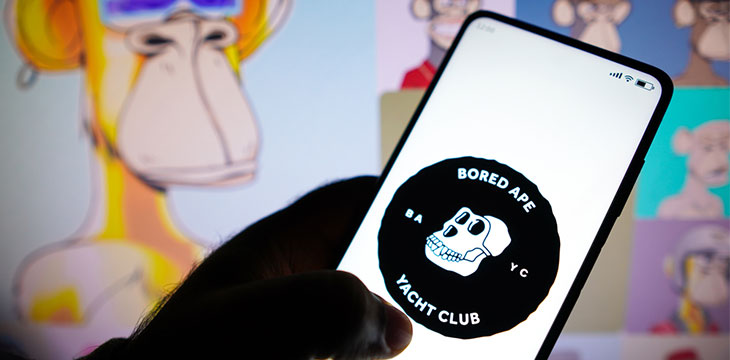|
Getting your Trinity Audio player ready...
|
Yuga Labs, the company behind the popular Bored Ape Yacht Club (BAYC) non-fungible token (NFT) collection, has settled with a developer whom it accused of playing a key role in a trademark infringement venture.
Yuga accused Thomas Lehman of building the website and smart contracts used to sell 10,000 “counterfeit” NFTs. Lehman was allegedly behind the “rrbayc.com” website and the “RRBAYC RSVP Contract.”
The two were used by artist Ryder Ripps in his sale of the 10,000 NFTs in 2022 under the RR/BAYC brand. As CoinGeek reported, Yuga alleges that Ripps ripped off the BAYC brand and that the sale amounted “to theft.”
“Copying is not satire, it is theft. And lying to consumers is not conceptual art, it is deception,” the company alleged at the time. Yuga has now settled with Lehman.
“I am happy to have resolved the Yuga Labs, Inc. v. Lehman trademark lawsuit in the [U.S. District Court] Northern District of New York. It was never my intention to harm Yuga Labs’ brand, and I reject all disparaging statements made about Yuga Labs and its founders and appreciate their many positive contributions to the NFT space,” the developer said to one news outlet.
While it has settled with Lehman, Yuga’s biggest battle is still ahead. The company is still embroiled in a legal tussle with Ryder Ripps, who has maintained that his project is a work of satire and is protected by the law as such.
But for now, Yuga is happy to take the win as it braces itself for the showdown with Ripps. In a statement following the settlement, the company said it was happy with the outcome.
“We are pleased that Mr. Lehman acknowledged his role in assisting former cohorts, Ryder Ripps and Jeremy Cahen, to infringe on Yuga Labs’ trademarks in developing, marketing, and selling counterfeit NFTs,” a statement from its spokesperson said.
While the settlement terms remain confidential, the two parties filed a permanent injunction order that prevents Lehman from using the BAYC mark and logo or any “confusingly similar works” in any capacity. He must also destroy any materials in his possession that bear BAYC or similar marks. This includes any RR/BAYC NFTs that he owns.
The battle for the Bored Apes
For Yuga, the biggest battle still lies ahead. After suing Ripps last June, the conceptual artist and self-labeled internet provocateur fought back, and in December, he filed a counterclaim against the company.
“Each of these NFTs is an entry on a decentralized digital ledger and entirely unique by design, making them both non-fungible and impossible to copy,” Ripps argued in his filing.
Last month, a federal judge granted a request by Ripps’ lawyer to depose Wylie Aronow and Greg Solano, the Yuga Labs cofounders.
This was a big blow to the company, which has been fighting to keep the two founders from deposition. It argued that they were apex witnesses, a term used to describe high-level executives at a firm in a bid to exempt them from deposition.
This defense failed for Yuga Labs. In his ruling, the judge determined that only the two can speak on the origins of the Bored Ape logo, which is the backbone of the lawsuit.
“The fact that they, who brought the lawsuit against me, cannot account for their own actions and have dodged producing anything throughout the discovery process should speak volumes,” Ripps commented after the ruling.
This lawsuit will have significant implications for the NFT industry. These non-fungible tokens have been touted to be the future of digital art, tokenization, and more, with their main selling point being their non-fungible nature.
Yuga understands the magnitude of the lawsuit, and to this effect, it has been careful about the claims against Ripps. It has accused the artist of trademark infringement only, and not copyright infringement. The latter would have opened the case to arguments on the fungibility of BAYC NFTs.
Watch: Metaverse, NFTs & Blockchain
Recommended for you
British lawmakers of the parliamentary national security committee have called for a temporary ban on political parties receiving donations in
Circle (NASDAQ: CRCL) soared in 2025 thanks to U.S. ‘regulatory clarity,’ but can this momentum survive a ban on crypto

 02-27-2026
02-27-2026 




